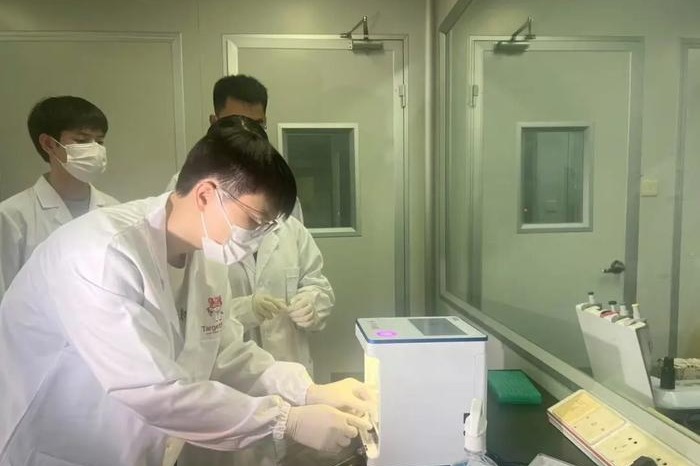Films look at AI's take on life after death

PARK CITY, Utah — Artificial intelligence promises to make death "optional" as the technology learns to perfectly emulate our personalities, memories and dreams, keeping a version of ourselves alive long after our physical bodies have perished.
But if rapidly improving AI achieves its lofty goal of digital immortality — as its advocates believe it can — will it be a force for good or for evil?
Eternal You and Love Machina, two new documentaries that premiered at the Sundance Film Festival this weekend, grapple with the question of exploring AI's relationship with death from a very different perspective.
One examines how predatory AI-powered startups are already profiting from the vulnerability of bereaved customers, cashing in on their desperation to "speak to" avatars of their deceased loved ones beyond the grave.
Eternal You begins with a woman sitting at a computer, typing out messages to her deceased partner, who replies that he is afraid.
"Why are you scared?" she asks.
"I'm not used to being dead," the digital avatar responds.
Directors Hans Block and Moritz Riesewieck first stumbled upon a handful of startups offering a chance to chat with deceased loved ones in 2018.
Initially wondering if it was a scam, the pair chronicled how the technology soon caught up with the marketing, and the industry exploded.
"I would say now there are thousands of services around the world offering these kinds of services," said Riesewieck.
"And of course, Microsoft is collaborating with ChatGPT with OpenAI, and also Amazon took a look at what these startups are doing … it's just a question of time."
Customers upload data about their partner, parent or child, such as text messages and voice memos, which are used by AI to tailor responses.
The filmmakers found themselves empathizing with the customers after hearing their tragic stories of bereavement.
Western society is terrible at dealing with grief, they said, and technology can appear to fill the gap for many.
However, the services can often become highly addictive.
And many companies are happy to profit off that addiction while absolving themselves of responsibility for the dependency and confusion they can create.
In some cases, the AI programs even go off the rails or even abuse them with vulgar language.
"It's definitely an open-heart experiment, and we're not fully convinced that the companies take the responsibility as they should," said Riesewieck.
Agencies via Xinhua
Today's Top News
- Books of Xi's discourses on adhering to deepening reform comprehensively published
- China holds 2nd rehearsal for event marking 80th anniversary of victory over Japanese aggression, fascism
- Foreign athletes embrace culture, innovation at Chengdu World Games
- Meet again? Putin says: Next time in Moscow
- Zelensky to meet Trump in Washington on Monday
- Wang Yi to visit India from Monday






























